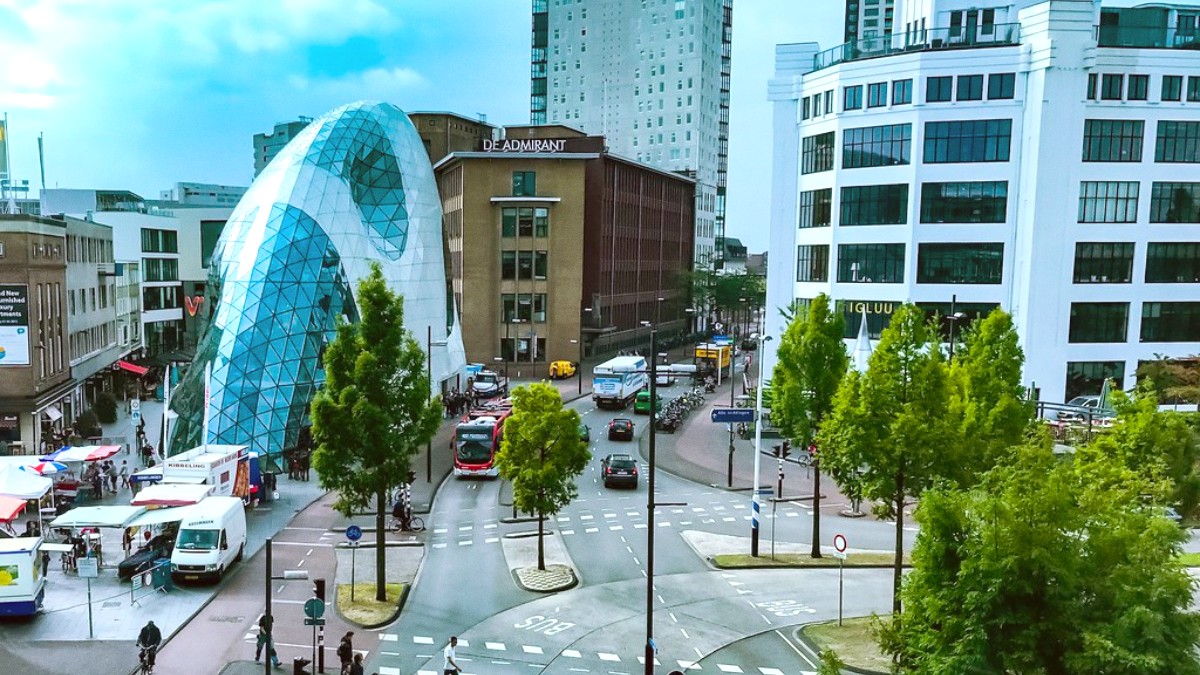
The Netherlands
Spring (April-May): Mild temperatures (8°C to 16°C), moderate rainfall. Blooming flowers and extending daylight mark this period. Air feels crisp and fresh. A Light rain jacket is a good addition.
Summer (June-August): Warmest months (16°C to 23°C), pleasant with occasional brief showers. Longest daylight hours, ideal for outdoor festivals and terrace dining. The city feels lively.
For cycling, visit from April to September for comfortable temperatures and less rain. The flat landscape and extensive bike paths make cycling a pleasant way to explore. Outdoor festivals and events mainly happen during June, July, and August, gaining from the warm weather and long evenings. Check local event listings for specific dates.
Dutch Design Week, a world-renowned event, takes place annually in October. If design, innovation, and contemporary art appeal, this is the prime time to visit, but expect higher prices and more crowds. Museums and indoor attractions are good choices year-round. They provide an excellent way to spend time during colder or wetter months, offering warmth and shelter.
(June-August)
Warmest weather, ideal for outdoor activities, numerous festivals, long daylight hours, lively city atmosphere.
Higher prices for flights and accommodation, more crowds at attractions.
(April-May, Sep-Oct)
Pleasant temperatures, fewer crowds, lower prices, blooming flowers or autumn foliage, good for cycling and Dutch Design Week.
Cooler temperatures, greater possibility of rain than in summer.
(November-March)
Lowest prices for flights and accommodation, fewest tourists, festive atmosphere in December.
Coldest weather, shorter daylight hours, limits outdoor activities, higher chance of rain/snow.
The Netherlands participates in the Schengen Area, which simplifies travel within many European countries. Many non-EU/EEA country citizens need a Schengen visa for stays up to 90 days within any 180-day period. This visa permits travel throughout the Schengen Area. Application occurs at a Dutch embassy, consulate, or visa application center in your home country. Visa-Exempt Nationalities (e.g., USA, Canada, Australia, UK, Japan, New Zealand) do not need a Schengen visa for short stays (up to 90 days); a valid passport is sufficient. ETIAS (European Travel Information and Authorization System) will be necessary from mid-2025 for visa-exempt non-EU nationals. This pre-travel authorization functions similarly to ESTA for the USA, for multiple short stays over three years.
Your passport must retain validity for at least three months beyond your intended departure date from the Schengen Area and feature at least two blank pages for stamps. Provide recent passport-sized photos meeting Schengen visa specifications. Proof of funds shows sufficient financial means. Present hotel bookings or a formal invitation letter for accommodation. Proof of onward or return travel shows your intent to leave. Travel insurance is mandatory for Schengen visa applicants, covering medical emergencies, hospitalization, and repatriation with a minimum coverage of €30,000.
No general entry fees for tourists.
Present passport (and visa/ETIAS) at border control. Expect questions on visit purpose.
Generally, no special permits for standard tourism.
No specific health-related entry requirements beyond routine vaccinations. Always check latest advisories.
Comprehensive Travel insurance is strongly advised.
The Netherlands uses the Euro (€) as its currency. Automated Teller Machines (ATMs), locally known as "geldautomaat" or "pinautomaat," are widely available throughout Eindhoven, offering generally good exchange rates. Credit and debit cards find wide acceptance across the city. Maestro cards are common for debit transactions, but Visa and Mastercard also receive acceptance in most places. Some smaller shops, traditional markets, or independent cafes may prefer cash or Dutch debit cards ("pinpassen"). A wise approach includes carrying some cash for small purchases, specifically for street food, public restrooms, or very small transactions. Inform your bank of your travel plans before departure to avoid any card freezes due to suspicious activity.
These estimates supply a general idea and may vary based on your specific choices and travel style. Excludes long-haul flights.
Prices for various aspects of your trip.
The Netherlands features a high-quality healthcare system. Dial 112 for police, fire services, or ambulance. Eindhoven holds large, modern hospitals like Catharina Hospital. Pharmacies are widely available for prescriptions and over-the-counter remedies. For non-emergencies, contact a 'huisarts' (general practitioner).